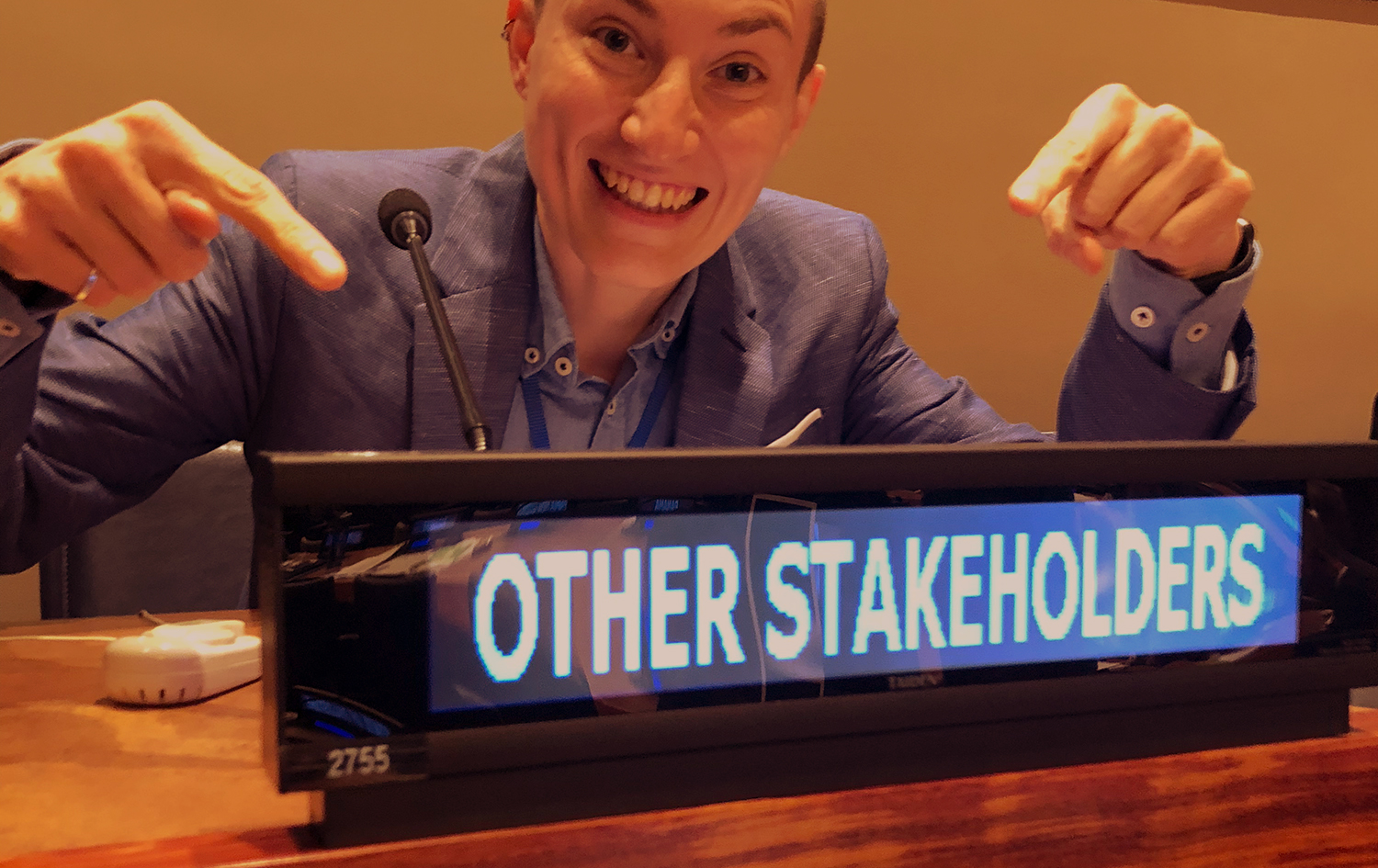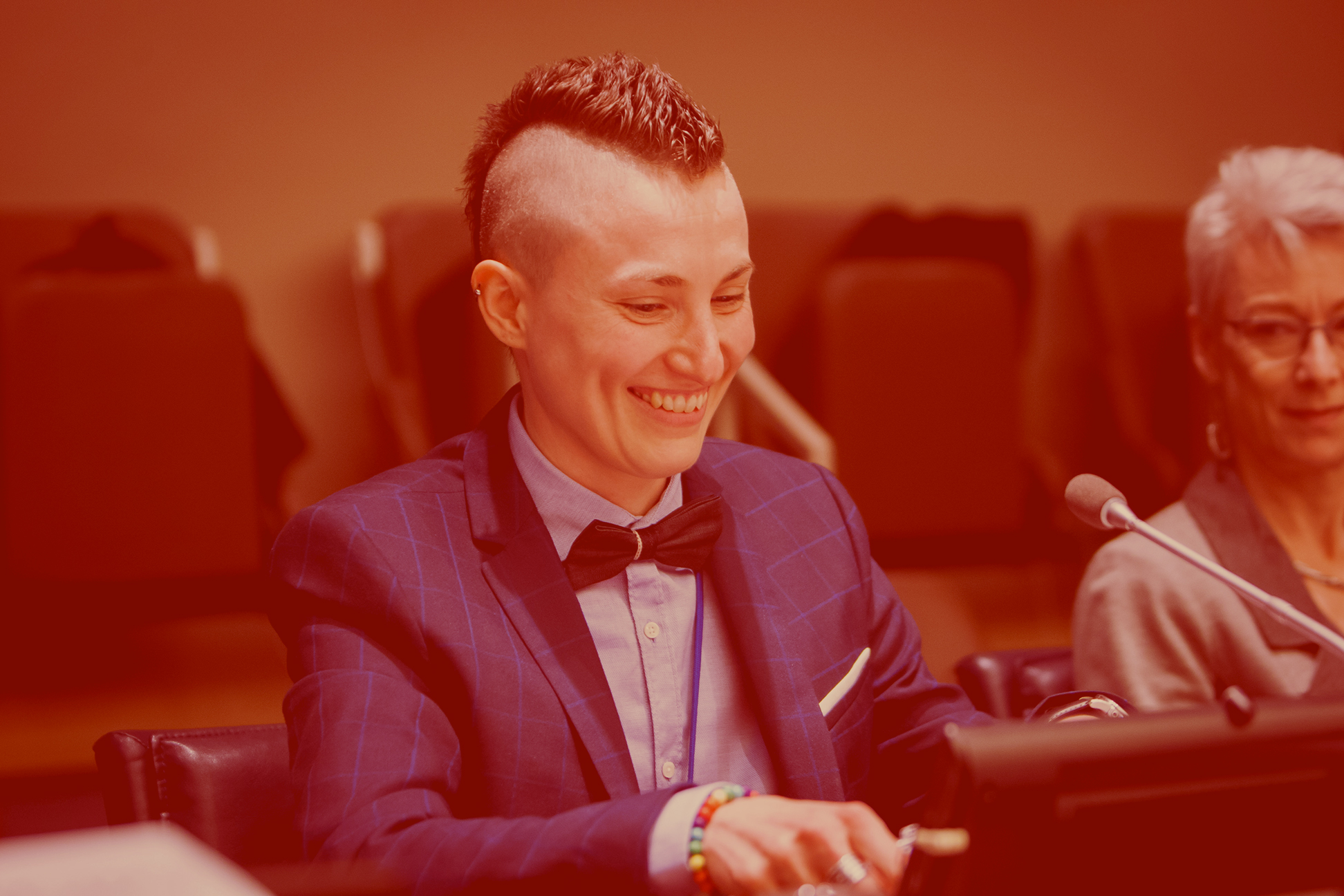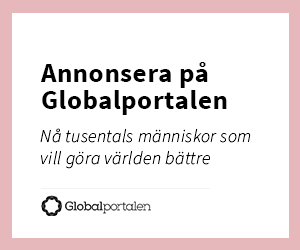Some may argue that the 2030 Agenda has failed the LGBTI community, since it does not explicitly reference LGBTI people. Globalportalen have met Micah, RFSL’s International Advocacy Advisor, who holds that the 2030 Agenda provides the LGBTI community with great opportunities, both when it comes to high-level advocacy and on-the-ground development work.
Globalportalen met with RFSL’s International Advocacy Advisor, Micah Grzywnowicz to talk about how the 2030 Agenda could be used as a tool to ensure that lesbian, gay, bisexual, transgender, and intersex (LGBTI) people are not left behind in sustainable development programs and policy.
Advocacy for human rights – using the 2030 Agenda as a tool
- The human rights framework and the development framework are two sides of the same coin and we need both to push the progress forward, especially for marginalised groups, says Micah Grzywnowicz, International Advocacy Advisor at RFSL.
Everyone has the right to live free without discrimination regardless of their sexual orientation, gender identity or expression and sex characteristics. RFSL supports LGBTI people's organizing around the world and has been doing advocacy work within the UN for several years. Even though, traditionally, the focus has been on the human rights framework, RFSL has been engaging with the Agenda 2030 from the start. After its adoption in 2015, it became clear that there was a growing need to build capacity within the LGBTI movements on how to use this new framework in advocacy and programmatic work on local or national levels.
The importance of language
When it comes to high level advocacy at the UN, the language and words used in documents are of great importance. Some may argue that the 2030 Agenda failed the LGBTI community, since it does not mention this group specifically. Nonetheless, the 2030 Agenda is one of the most inclusive documents you will ever read coming from the UN, according to Micah.
- No legally binding document in the human rights framework mentions the LGBTI community explicitly; however we learned how to use them to our benefit. We have to do the same with Agenda 2030.
The 2030 Agenda states that human rights and freedoms are to be respected and protected for all, ”without distinction of any kind as to race, colour, sex, language, religion, political or other opinion, national or social origin, property, birth, disability or other status.” Clearly, this does not specify sexual orientation and/or gender identity or sex characteristics as a basis for such distinction. However the use of the term “other status” provides an opening, according to Micah, for the inclusion of LGBTI people and communities. These two words thus have huge significance.
This open and inclusive language in the Agenda 2030 is paramount, since it gives opportunities to any group that risks being left behind in development to actually take part in the work and push for changes.

Shedding light on everyday challenges
Recently RFSL published a document called “Guiding Principles on the Inclusion of Lesbian, Gay, Bisexual, Transgender, and Intersex (LGBTI) People in Development Policy and Programs”. These principles are meant to provide guidance and tools to include LGBTI people in the implementation of the global goals as well as broader development activities.
Talking about LGBTI issues, one tends to only think of LGBTI people around the world being persecuted, harassed and discriminated against. This is of course very much a reality, but LGBTI people face other challenges too. Challenges that are being tackled by LGBTI communities all over the world doing development work, operating on the ground and providing services related to health, HIV and AIDS prevention, sexual and reproductive health and rights, homelessness, poverty, youth and education.
The 2030 Agenda calls for practical work to be done on national levels in a number of areas. It is about, for example, providing housing, access to health care, good quality education, and poverty reduction. Depending on where one lives, the strategies will have to be different but the framework of what needs to be addressed is provided by the Agenda 2030. Since many LGBTI organisations have long functioned as service providers, doing exactly the type of work that is needed for the global goals to be realised in their countries and/or local communities, the 2030 Agenda gives them the opportunity to strengthen their positions. According to Micah, LGBTI organisations are good at calling attention to their work and showcasing how their activities benefit their countries and communities at large.
- Governments need to finally realize that by excluding LGBTI people, they lose in human potential, resources and, simply, it is not smart for the economy. They could instead benefit from our communities’ skills and talent, says Micah.
Everyone’s contribution is needed for the Agenda 2030 to succeed – this means governments, businesses, academics, civil society and individuals.
- Implementation of the Agenda 2030 is a teamwork. Governments cannot leave pockets of their societies behind, adds Micah.
Who is counted is who counts
Micah and their peers are working hard to use the open language in the 2030 Agenda to make LGBTI people and issues more visible.
- I always say “who is counted is who counts”. If someone is not visible or their challenges are unknown, the issues cannot be addressed. Based on anecdotal data from various communities, we know more or less what issues people face, but our decision-makers and our policy makers need proof.
In this case, proof means credible and timely data. Good data can help increase knowledge and awareness, and is essential to creating or changing development policies and programs. However, there is a huge gap when it comes to LGBTI inclusion. At the moment, there is no data collected systematically and there is also no data that could be compared between countries.
Since 2015, RFSL has been involved in a UNDP-led project called “LGBTI Inclusion Index”, which aims to establish an index collecting data on LGBTI inclusion with indicators for five priority areas: political and civic participation; education; health; personal security and violence, and economic well-being.
UNDP is the UN agency behind the Human Development Index, which centers people and their capabilities as the ultimate criteria for development, not solely the economic growth. So hopefully, in some years the “LGBTI Inclusion Index” will be able to provide data on global trends, when it comes to LGBTI inclusion.
- It’s one of the things that I’m most proud of and it’s so important to have RFSL be part of a process like this. We are creating a new tool that will hopefully contribute to creating tangible changes for people.

